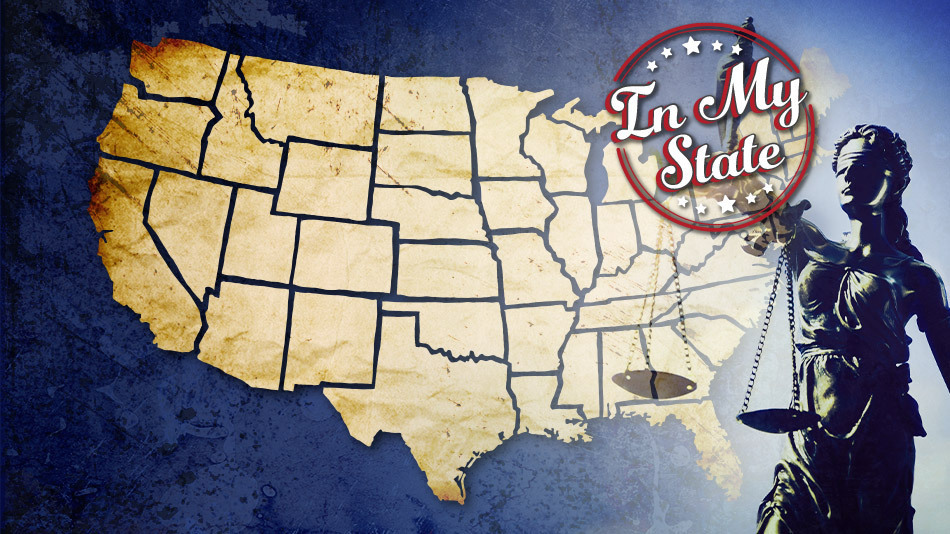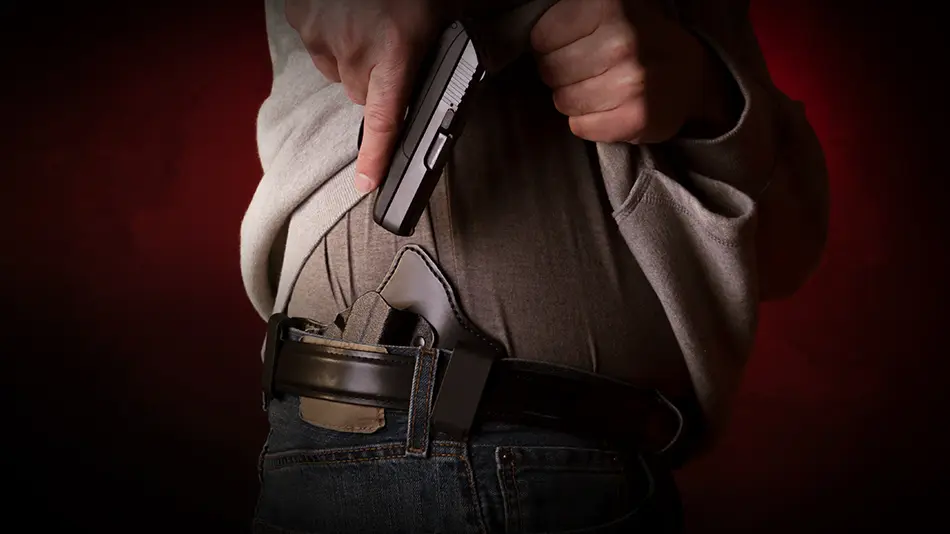
Can a judge sign an order allowing police to seize your guns even if you do not break a single law? In recent years, there has been a nationwide push for “extreme risk protective orders” or “red flag” laws specifically designed to remove firearms from people accused of engaging in conduct or making statements that others may deem “dangerous.” You’ve probably heard about them in the news recently; but what are they? What do you need to know about them, and how could they be used to take away your Second Amendment rights? Let’s look at the history of these laws and how New Jersey uniquely falls on this hotly debated area.
The History of Red Flag Laws
Red flag laws entered prominent national discourse in 1999 when Connecticut passed the first law of its kind because of a mass shooting at the Connecticut Lottery headquarters. Lawmakers in Connecticut intended this law to target individuals with specific mental health conditions and prevent them from accessing firearms.
More recently, on February 14, 2018, a 19-year-old former student opened fire at Marjory Stoneman Douglas High School in Parkland, Florida, killing 17 people and injuring 17 others. There was an immediate national outcry to “do something” to stop what the media has frequently dubbed “gun violence.” When information emerged that the shooter had documented mental health issues, lawmakers across the country began pushing for laws to take guns away from individuals whose behavior raised a “red flag” that they might be a threat to themselves or others.
In theory, the purpose of these laws is to identify an individual who exhibits early warning signs of danger and prevent a criminal act from occurring, by preemptively disarming them. However, there’s an obvious irony with red flag legal proceedings: the person’s firearms are seized, but the individual may be quickly released back into society, free to pursue whatever misdeeds they might choose.
Many of the states with red flag laws currently on the books allow for an enforceable court order that prevents the person from owning, purchasing, possessing, or transporting firearms and ammunition for a specified period of time. Several jurisdictions also allow the extension of these orders if the affected individual is still “deemed a threat.”
For example, under California’s red flag law (“Gun Violence Restraining Order”), a person could be prohibited from owning, purchasing, possessing, or transporting firearms and ammunition initially for between one and five years, with the potential for the order to be renewed and extended indefinitely. California Penal Code §§ 18170-18197 lays out the process by which any qualifying person may ask to extend the red flag order within three months of its expiration. The order will be extended if the court finds that the person still poses a significant danger of causing personal injury to themselves or another by controlling, owning, purchasing, possessing, or receiving a firearm, ammunition, or magazine, and all other conditions for renewal are satisfied.
A Californian subject to a red flag order may petition the court only once per year and ask for it to be lifted, which could entail another costly and time-consuming legal proceeding.
As of the date of publication of this article, 19 states and the District of Columbia have enacted versions of red flag laws. How do things stand for New Jersey?
Red Flag Law in New Jersey
Since 2019, firearms can be seized and forfeited under a Chapter 58 Extreme Risk Protective Order (“ERPO”) in New Jersey. A family or household member or law enforcement officer may file a petition for a temporary ERPO alleging that the respondent poses a significant danger of bodily injury to themselves or others by having custody or control of, owning, possessing, purchasing, or receiving a firearm or ammunition. The petition is heard by the court in an expedited manner. If the court determines the respondent in fact does pose a significant danger to themselves or others, it may issue a final ERPO prohibiting the respondent from purchasing or possessing firearms or ammunition for one year. Petition forms are readily available at the courts and at state, county, and municipal law enforcement agencies.
Both a temporary and final ERPO prohibit the respondent from having custody or control of, owning, purchasing, possessing, or receiving firearms or ammunition, and from securing or holding a firearms license or permit during the period the protective order is in effect. Additionally, the order requires the respondent to surrender all firearms and ammunition in the respondent’s custody or control, or which the respondent possesses or owns, and any firearms license or permit is immediately revoked per N.J.S. § 2C:58-3f.
Who Qualifies as a “Family or Household Member”?
“Family or household member” means a spouse, domestic partner, partner in a civil union couple, or former spouse, former domestic partner, or former partner in a civil union couple, or any other person who is a present household member or was at any time a household member; a person with whom the respondent has a child in common, or with whom the respondent anticipates having a child in common if one of the parties is pregnant; or a current or former dating partner.
What Is Included in an ERPO Petition?
A petition for a temporary ERPO shall include an affidavit setting forth the facts tending to establish the grounds of the petition, or the reason for believing that they exist, and, to the extent available, the number, types, physical description, and locations of any firearms and ammunition currently believed by the petitioner to be controlled or possessed by the respondent. There is no filing fee.
A judge shall issue the temporary order effective for up to 10 days, during which time a hearing is held in Superior Court. At the hearing for a final ERPO, if the Superior Court finds by a preponderance of the evidence that the respondent poses a significant danger of bodily injury to the respondent’s self or others by having custody or control of, owning, possessing, purchasing, or receiving a firearm, the court shall issue a final ERPO.
If issued, the final ERPO prohibits the respondent from having custody or control of, owning, purchasing, possessing, or receiving a firearm and can be terminated by the court, upon request of the petitioner or respondent. The petition for termination of the order may be filed at any time following the issuance of the order. During a hearing on termination of the order, the court shall consider the same factors that it considered in granting the ERPO, as well as any other relevant evidence including, but not limited to, whether the respondent has received, or is receiving, mental health treatment.
If the respondent petitioned for termination, the respondent shall bear the burden at the hearing of proving by a preponderance of the evidence that the respondent no longer poses a significant danger of causing bodily injury to the respondent’s self or to other persons by having custody or control of, owning, possessing, purchasing, or receiving a firearm.
Effects of a Final ERPO
The court will order the respondent to surrender all firearms, ammunition, and licenses to law enforcement. The court will also issue a search warrant on an ERPO, and the law enforcement officer who serves the order shall request that all firearms and ammunition immediately be surrendered. The respondent must immediately surrender, in a safe manner, all firearms, ammunition, and licenses to the control of the law enforcement officer, which are cataloged with identifying information listed on a receipt delivered to the respondent.
The respondent may request that the law enforcement agency sell all firearms and ammunition to a federally licensed firearms dealer. The law enforcement officer or licensed firearms dealer taking possession of any firearms or ammunition will issue a receipt identifying all firearms and ammunition that have been surrendered by the respondent. The officer or dealer will provide a copy of the receipt to the respondent at the time of surrender.
If the respondent surrenders their firearms and ammunition to a law enforcement officer or surrenders or sells their firearms and ammunition to a licensed dealer, the respondent must, within 48 hours after being served with the order, file the receipt with the county prosecutor. Failure to timely file the receipt or copy of the receipt will constitute contempt of the order.
Electronic Database for ERPOs
All persons who have had a final ERPO entered against them, and all persons who have been charged with a violation of a temporary or final ERPO, are entered in an electronic central registry created and maintained by the Administrative Office of the Courts. These records are kept confidential and released only to a police or other law enforcement agency investigating a report of a crime, offense, or act of domestic violence, or conducting a background investigation involving a person’s application for a firearms purchaser identification card or permit to purchase a handgun or employment as a police or law enforcement officer, or for any other purpose authorized by law or the Supreme Court of the State of New Jersey. A respondent’s information, other than information related to a violation of a temporary or final order, is removed from the registry upon the termination of the extreme risk protective order.
Criminal Liability for Violating an ERPO
Under N.J.S. § 2C:39-7b.(4), any person who is subject to an ERPO and purchases, acquires, owns, possesses, or controls a firearm or ammunition is guilty of a crime of the third degree, carrying up to five years in state prison.
If you have questions about red flag laws or any other gun-related legislation, call U.S. LawShield and ask to speak to your Independent Program Attorney.
The information provided in this publication is intended to provide general information to individuals and is not legal advice. The information included in this publication may not be quoted or referred to in any other publication without the prior written consent of U.S. LawShield, to be given or withheld at our discretion. The information is not a substitute for, and does not replace the advice or representation of a licensed attorney. We strive to ensure the information included in this publication is accurate and current, however, no claim is made to the accuracy of the information and we are not responsible for any consequences that may result from the use of information in this publication. The use of this publication does not create an attorney-client relationship between U.S. LawShield, any independent program attorney, and any individual.





Leave A Comment